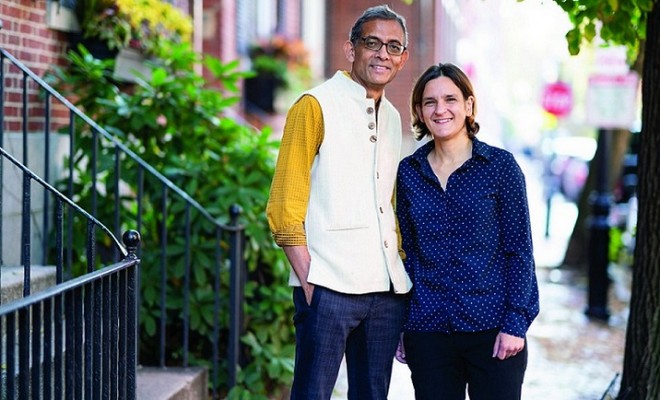
Poverty Fighters
Andreas Adriano profiles MIT’s J-PAL, where Esther Duflo and Abhijit Banerjee are reinventing development economics
Some seemingly great development ideas don’t work out as expected. One that famously flopped was to replace open-fire cooking used by 3 billion of the world’s poorest people with more efficient, less polluting stoves under the Global Alliance for Clean Cookstoves initiative. The $400 million project was backed by the United Nations and launched by former US Secretary of State Hillary Clinton in 2010. It set out to reduce indoor air pollution, which kills 2 million people a year, while empowering women and helping the environment. After initial success, millions of stoves built in India were largely abandoned after four years.
Why didn’t it succeed? Researchers from the Abdul Latif Jameel Poverty Action Lab, known as J-PAL, went to the field to find out. Following about 2,500 households in 44 villages in the eastern Indian state of Odisha, they discovered many seemingly minor reasons. The new stoves needed more attention, would break down and weren’t repaired, took longer to cook food, and couldn’t be moved outdoors because of the chimneys that sent the smoke outside, the research showed.
“For the hyper-rational being that lives in economic models, none of this ought to matter,” wrote Abhijit Banerjee, a Massachusetts Institute of Technology (MIT) economics professor who is a cofounder and director of J-PAL, in an article. However, the experience was a reminder that “the fact that we think something should work is not enough—it needs to work for the people who use them.” During its 17-year history, J-PAL has developed a scientific, evidence-driven-economics approach to fighting poverty. According to Executive Director Iqbal Dhaliwal, this provides an alternative to “basing decisions on instinct, ideology, or inertia.”
Συνέχεια ανάγνωσης εδώ
Πηγή: imf.org




